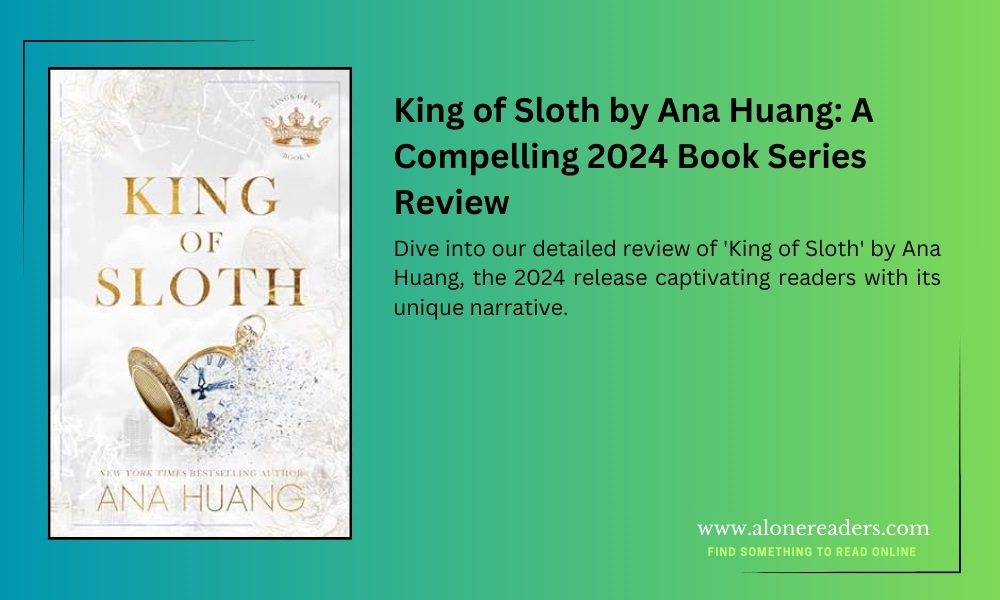
Ana Huang's latest series, "King of Sloth," which debuted in 2024, has swiftly carved out a niche for itself within the contemporary romance genre. This review explores the intricacies of Huang's storytelling, the development of her characters, and the unique elements that set this series apart in a saturated market.
"King of Sloth" introduces readers to a world where passion collides with personal demons, weaving a tale that's both intensely personal and universally relatable. The protagonist, whose depth and complexity are revealed slowly through the series, battles with inertia—not just physically but emotionally and mentally—offering a fresh take on the classic themes of love and personal growth.
Huang is known for her ability to craft multidimensional characters, and this series is no exception. The lead characters are not only dealing with their romantic feelings but also with their internal conflicts, making their journey towards each other as turbulent as it is tender. The authenticity of their emotions is one of the series' standout features, as it allows the reader to truly connect with their struggles and triumphs.
The narrative is paced deliberately, mirroring the theme of sloth that pervades the series. This pacing might not cater to all, as some readers may find the slow burn either tantalizing or tedious, depending on their personal taste. However, it’s this very pacing that beautifully encapsulates the protagonist's internal battle with sloth—be it in his career, his personal growth, or his resistance to love.
Huang's writing shines when describing the minutiae of interactions between characters, turning mundane moments into significant, story-altering events. Her attention to detail ensures that the settings are not just backdrops but active elements in the storytelling, enhancing the emotional and psychological stakes for the characters involved.
Romance is undoubtedly at the heart of "King of Sloth," but the series also offers a poignant look at overcoming personal limitations and societal expectations. It delves into how our backgrounds shape our present and how our fears can dictate our futures if left unchecked. Through her characters' journeys, Huang posits that true bravery lies in vulnerability—especially when it comes to love.
Critically, "King of Sloth" has been well-received for its innovative narrative structure and its deep, psychological character studies. Readers have praised the series for its emotional depth and realism, highlighting Huang's skill at balancing romantic idealism with the harsher realities of life.
However, the series is not without its criticisms. Some reviewers have noted that the thematic exploration of sloth sometimes leads to a narrative that feels overly introspective, which might detract from the action-driven plot that romance readers might expect. Despite this, the majority opinion leans positively, with particular appreciation for Huang's lyrical writing style and thoughtful character development.
In conclusion, "King of Sloth" by Ana Huang is a significant addition to the contemporary romance genre. It challenges the norms of romantic storytelling by focusing not just on the outcome of love but on the personal growth that makes love worthwhile and enduring. Whether you are drawn to psychological depth in your romance novels or are a fan of Ana Huang’s previous works, this series promises a thoughtful, if at times slow, exploration of what it means to truly love someone—including oneself.